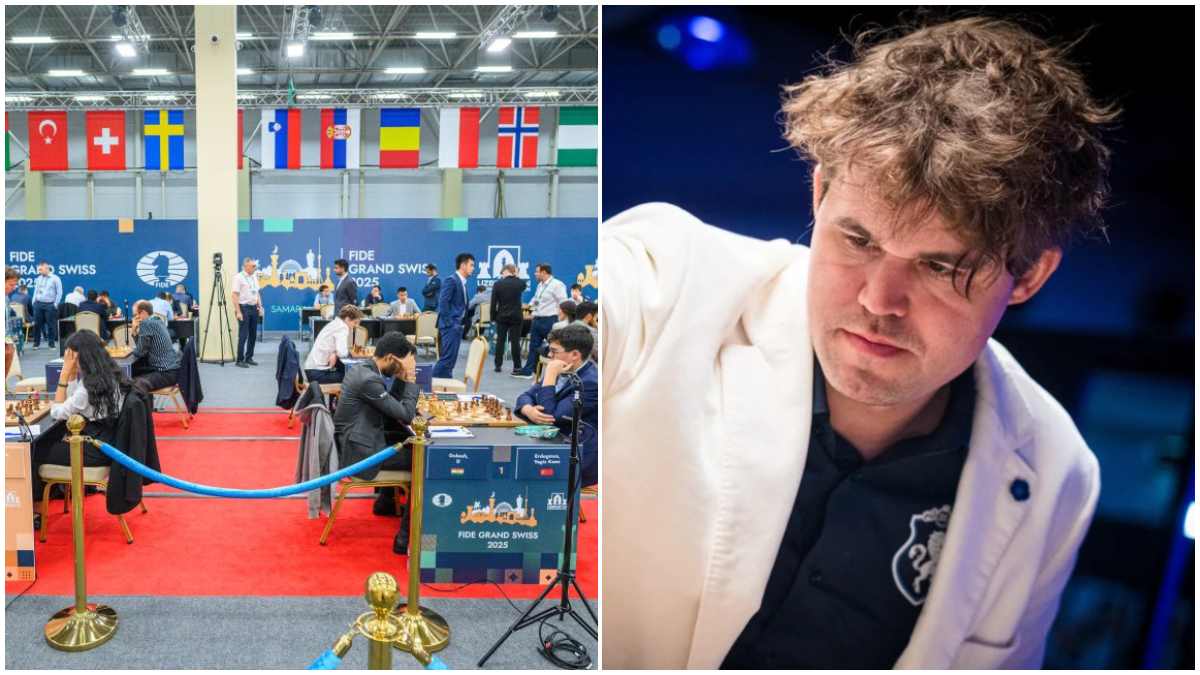Last Updated:
Russia claims its Enteromix cancer vaccine is ready for use after showing 100% efficacy and zero side effects in trials on 48 patients.

Enteromix is a vaccine designed to treat cancer after diagnosis, not prevent it. (Representative image)
Russia has unveiled what it calls a major breakthrough in cancer therapy: a vaccine named ‘Enteromix’ that has reportedly shown 100 per cent efficacy and zero side effects in early-stage studies. But with no peer-reviewed trial data and little clarity on the vaccine’s current regulatory stage, international experts are urging caution.
The announcement was made by Veronika Skvortsova, head of the Russian Federal Medical and Biological Agency (FMBA), at the Eastern Economic Forum in Vladivostok between 3–6 September 2025. According to Skvortsova, Enteromix is “ready for clinical use” after completing mandatory preclinical testing and showing dramatic results in patients with colorectal cancer. “The research spanned several years, with the last three dedicated to mandatory preclinical studies,” Skvortsova reportedly said. “The vaccine is now ready for use; we are awaiting official approval.”
Recommended Stories
But the declaration, which was first reported by Russian news agency TASS, has sparked both excitement and scepticism, primarily because no trial data has been published and no international peer review has occurred.
Here’s a detailed look at what Enteromix is, what Russia is claiming, and how it fits into the global landscape of cancer vaccines.
What Is Enteromix?
Enteromix is a vaccine designed to treat cancer after diagnosis, not prevent it.
While TASS did not specify what kind of platform the vaccine is built on, other outlets such as Sputnik described Enteromix as an mRNA-based vaccine. According to it, the jab is personalised to each patient’s tumour RNA profile and designed to shrink tumours, slow progression, and boost survival, all without serious side effects. As per Sputnik, Skvortsova said the vaccine will be customised for each patient and that its first target is colorectal cancer.
What Cancer Types Is Enteromix Meant To Treat?
According to FMBA and the Russian Ministry of Health, the initial version of Enteromix is aimed at treating colorectal cancer, a major global cancer burden known for its resistance to chemotherapy and radiation.
According to the Russian Ministry of Health, other variants of Enteromix are in development for glioblastoma (an aggressive brain tumour) and ocular melanoma (a rare eye cancer).
However, Russian authorities have not released specific details about the clinical trial structure, enrolment criteria, or regulatory review process.
What Are The Results Being Cited?
FMBA officials have said Enteromix was tested on 48 colorectal cancer patients during a Phase I clinical trial. Dr Yulia Mikhailova, a molecular oncologist affiliated with the project, told Russian media that Enteromix was created using RNA extracted from each patient’s tumour.
According to her, the vaccine:
- Achieved 100 per cent immune activation
- Showed tumour regression or disease stabilisation in 60–80 per cent of cases
- Caused no severe side effects, even with repeated administration
However, as highlighted by Newsweek, these results have not been independently verified. No trial data has been made publicly available, and there is no publication in peer-reviewed journals, no biomarker breakdown, and no control group comparison shared so far.
Is It Ready For Clinical Use Or Still In Trial Phase?
This is where ambiguity remains.
While Skvortsova claimed the vaccine is “ready for clinical use,” she also said that Enteromix has completed mandatory preclinical testing, a term usually referring to animal trials, not human studies. However, the FMBA also presented results from testing on 48 human patients, which would indicate a Phase I trial.
This contradiction has raised red flags among experts. Quoted by Newsweek, Dr David Pinato, an oncologist at Imperial College London, said the data cannot be evaluated until it is published. “The fact that a vaccine approach has had 100 per cent efficacy in animals [if this is the case] means absolutely nothing,” he noted.
“If this is truly preclinical results, it’s amazing, it’s interesting. It’s another one of those potential results that could then lead to a drug in the future but it’s by no means something that can be advocated for clinical use [yet],” Pinato said.
What Are Experts Saying?
Multiple oncologists have urged the public and media to treat the news with cautious optimism, not uncritical celebration.
Dr Dhiren Bhatia, a clinical oncologist and former WHO cancer advisor, told India Today that a trial involving 48 patients is far too small to generalise from, especially in cancer, where response varies wildly based on genetics and tumour type. “Phase I trials are about safety, not efficacy. Until we see raw data — such as overall survival (OS), progression-free survival (PFS), and long-term outcomes — this remains promising but unproven,” he said.
Dr Priya Arora, senior oncologist at the Indian Cancer Society, told the outlet that the scientific method cannot be bypassed, regardless of technological optimism. “This is exciting, no doubt. But until it outperforms existing standards of care across diverse populations with long-term data, it must remain in the ‘early research’ category,” she said.
Has Russia Attempted Cancer Vaccines Before?
Yes. Enteromix is not Russia’s first attempt at developing cancer immunotherapies.
In the early 2000s, Russian researchers developed Oncophage (Vitespen), a kidney cancer vaccine using heat-shock proteins from the patient’s tumour to trigger an immune response. Though it showed promise in Russian trials, follow-up studies in the US and Europe failed to replicate the results.
Other projects have included peptide-based vaccines for prostate cancer and melanoma, but none have received international regulatory approval. Common concerns around past Russian trials have included small sample sizes, lack of transparency, and no peer-reviewed publication — issues that appear to apply to Enteromix as well.
How Does Enteromix Compare With Other Global Cancer Vaccine Efforts?
Western pharma companies are currently running large-scale, transparent cancer vaccine trials.
For instance, Moderna and Merck’s mRNA-4157/V940 vaccine, a personalised therapeutic jab using mRNA, is in Phase 3 trials for melanoma. It has received Breakthrough Therapy Designation from the US Food and Drug Administration (FDA). Similarly, BioNTech and Genentech’s Autogene Cevumeran, another personalised mRNA cancer vaccine, is in Phase 2 testing for colorectal and pancreatic cancers.
These projects have released protocols, published peer-reviewed data, and engaged multiple international trial sites. By contrast, Enteromix has yet to release any underlying data or register its trials internationally.
What Does This Mean For Cancer Patients?
Enteromix could represent an important advancement in precision oncology, if the FMBA’s claims hold up under scrutiny. A vaccine with zero side effects and broad tumour-fighting capability would be a major global breakthrough.
But scientists are aligned on one point: hope is not a substitute for evidence. Until trial data is published, survival rates are independently verified, and long-term outcomes are established, this vaccine is not a cure. It’s an early-stage scientific candidate — presented on a big stage, but still a long way from the clinic.
About the Author

Karishma Jain, Chief Sub Editor at News18.com, writes and edits opinion pieces on a variety of subjects, including Indian politics and policy, culture and the arts, technology and social change. Follow her @kar…Read More
Karishma Jain, Chief Sub Editor at News18.com, writes and edits opinion pieces on a variety of subjects, including Indian politics and policy, culture and the arts, technology and social change. Follow her @kar… Read More
September 10, 2025, 18:34 IST
Loading comments…
Read More




)